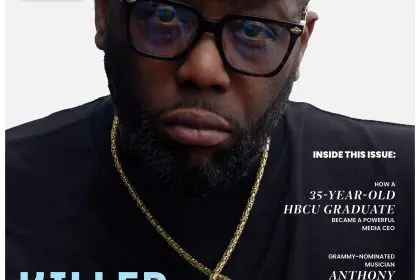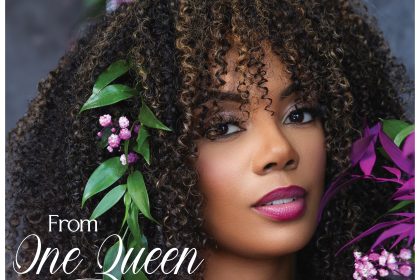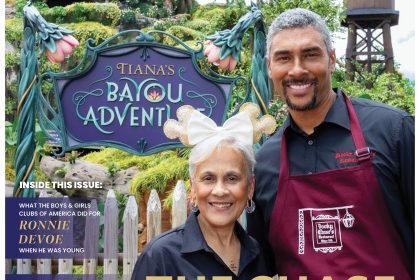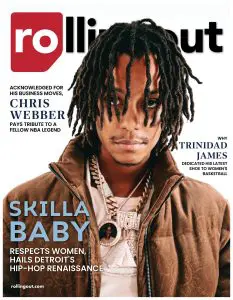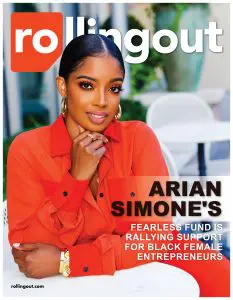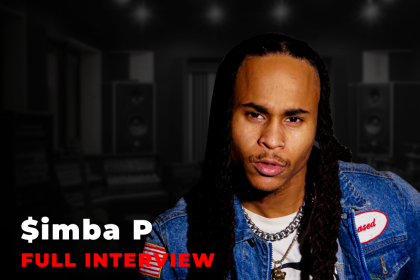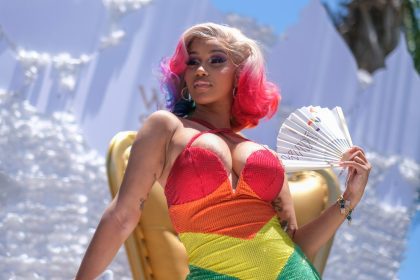In the neon-lit landscape of contemporary hip-hop, where excess often overshadows essence, New Orleans native Dee-1 has carved out an unprecedented path: one that leads straight from the classroom to the charts, with his conscience intact. In an era where mainstream rap often celebrates materialism and mayhem, Dee-1 stands as a testament to the power of purpose over profit.
The former middle school math teacher, whose latest album “Loaded” debuted at No. 2 on the global hip-hop charts — second only to Eminem — isn’t just making waves; he’s creating a tsunami of change in an industry often criticized for its negative influences. His rise to prominence proves that authenticity can still triumph in an industry known for manufacturing personas.
“I grew up knowing love,” Dee-1 reflects, his East New Orleans accent adding warmth to his words. “My parents and grandparents definitely set the stage so that I knew how to treat people because I saw them treat people right.” This foundation would later become the cornerstone of his musical philosophy: be real, be righteous, be relevant — a mantra that has guided him from the classroom to the concert stage.
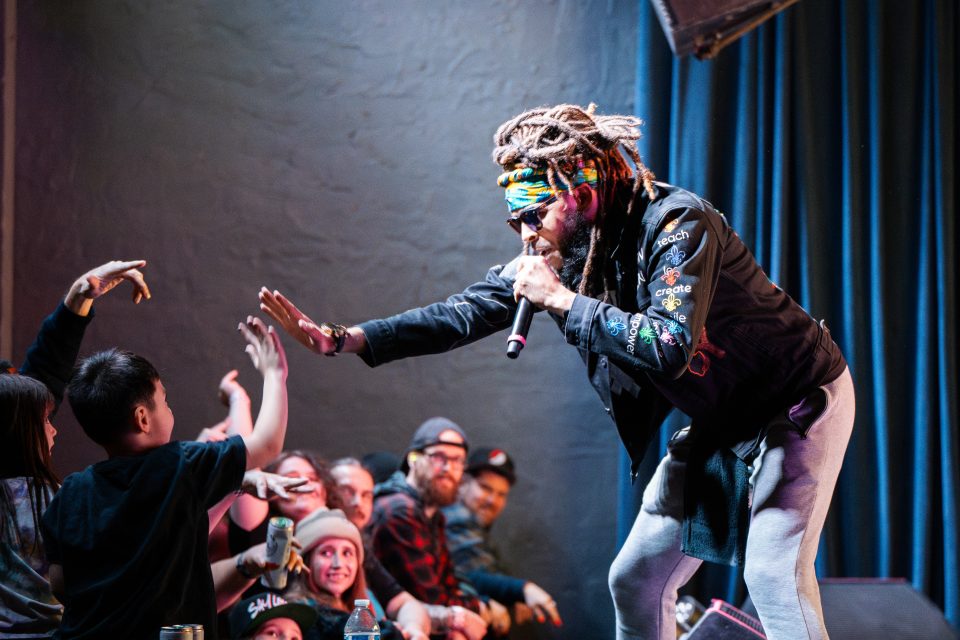
Bridging the gap between conscientious and commercial success
The journey from educator to hip-hop innovator wasn’t a departure from teaching but an expansion of his classroom. “While I was teaching for those two years, I realized that I can make even more impact as a rapper because, as a rapper, I can have the heart of a teacher but the platform of a rapper,” he explains. This unique perspective has allowed him to bridge gaps between education and entertainment, conscientiousness and commercial success.
His impact hasn’t gone unnoticed by hip-hop’s elite. When Kendrick Lamar name-dropped him, “my heart like Dee-1,” it wasn’t just a casual mention — it was a coronation of sorts. The shoutout came at a particularly poignant moment when Dee-1 faced criticism in his hometown for defending Lamar’s Super Bowl performance over local favorite Lil Wayne. “My grandpa used to tell me that your character will take you places that your skillset can’t,” Dee-1 says, pride evident in his voice.
His initiative, the Platinum Pledge, represents perhaps his boldest move yet. The pledge calls for a unified stand against music that glorifies violence, drug abuse, and misogyny. “I made a vow to myself that I wouldn’t just be a person to complain about what’s wrong with hip-hop,” he explains. “I wanted to actively be the change that I wanted to see.” The Platinum Pledge, available on his website, has become a rallying point for artists, fans, and industry executives seeking to shift the culture toward more conscientious content.
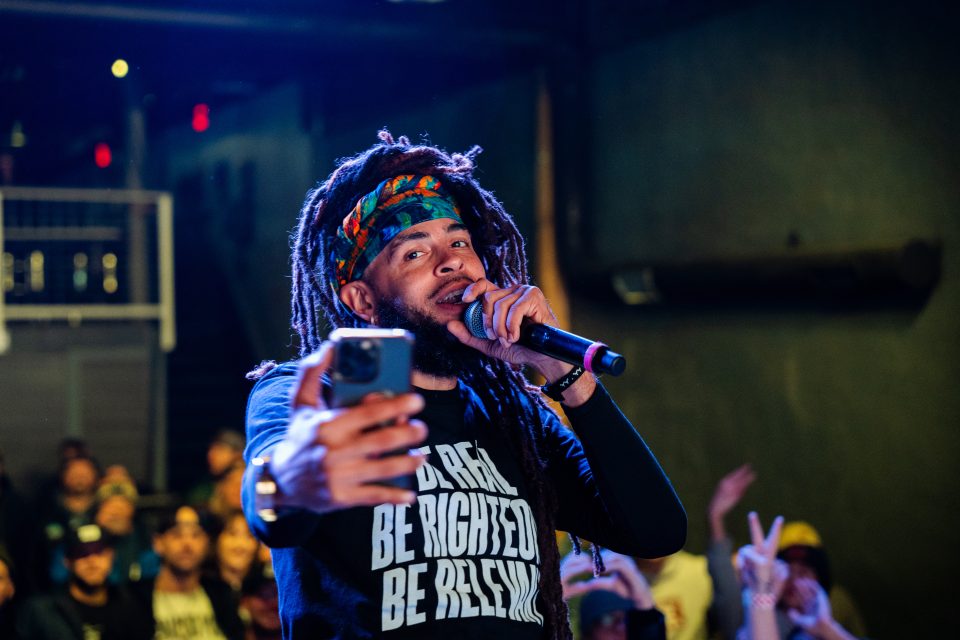
How Dee-1 harnesses hip-hop to heal
This commitment to positive change extends far beyond music. As a fellow for the “Nasir Jones Hiphop Fellowship” at Harvard University, Dee-1 conducted groundbreaking research on hip-hop’s role as an educational tool in the Black community. His findings revealed the genre’s profound influence on everything from conflict resolution to relationship dynamics, leading him to explore new ways to harness this power for positive change.
This research inspired his children’s book, “David Found His Slingshot,” an anti-bullying narrative that uses hip-hop’s storytelling power to reach young readers. The book, based on his own experiences with bullying in school, demonstrates how personal challenges can be transformed into tools for empowerment. “Your slingshot is a metaphor for your passion and for your gift,” he explains. “When you find your slingshot in life and use it for the purpose it was designed for, then you see how you are able to defeat the Goliaths in your life.”
Currently on The Satisfied Soul Tour with Brother Ali, a devout Muslim, Dee-1 is breaking down more than just musical barriers. The Christian rapper and his Muslim tourmate are demonstrating unity in an era of division. “People, oftentimes, will look at a person and just find one trait about them and say, ‘Oh, because you’re this, or because you’re that, we can’t coexist,'” he observes. “That’s the biggest lie ever told.” Their collaboration proves that music can bridge religious and cultural divides, creating spaces for dialogue and understanding.
His podcast, “Flipping Tables with Dee-1,” further amplifies his message of conscientious disruption. Named after Jesus’s act of righteous anger in the temple, the show features conversations with figures like Adrian Griffin Jr., who recently left the NBA to pursue ministry full time. These discussions delve deep into questions of purpose, faith and authenticity in an age of superficial success.
The podcast also serves as a platform for addressing industry issues that often go unspoken. “When I stopped idolizing people, stopped putting them on the pedestal and started looking at them as people, I’m like, they are empty,” he reflects on his observations of the music industry. “They are rich slaves a lot of the time.” This unflinching honesty has earned him respect within the industry.
His work with the Black Church PAC demonstrates his commitment to action beyond artistry. Collaborating with leaders like Pastor Mike McBride, Dee-1 has been instrumental in mobilizing voters and engaging college students in both faith and activism. “The work is to be done outside the four walls of the church,” he emphasizes, highlighting his belief in the intersection of faith and social action.
In an industry where success often demands compromise, Dee-1 remains steadfast in his principles. “I don’t love this paper more than my purpose,” he raps in one of his tracks, a line that encapsulates his approach to both music and life. This unwavering commitment to authenticity has not only sustained his career but has helped him build a devoted following that shares his vision for conscientious hip-hop.
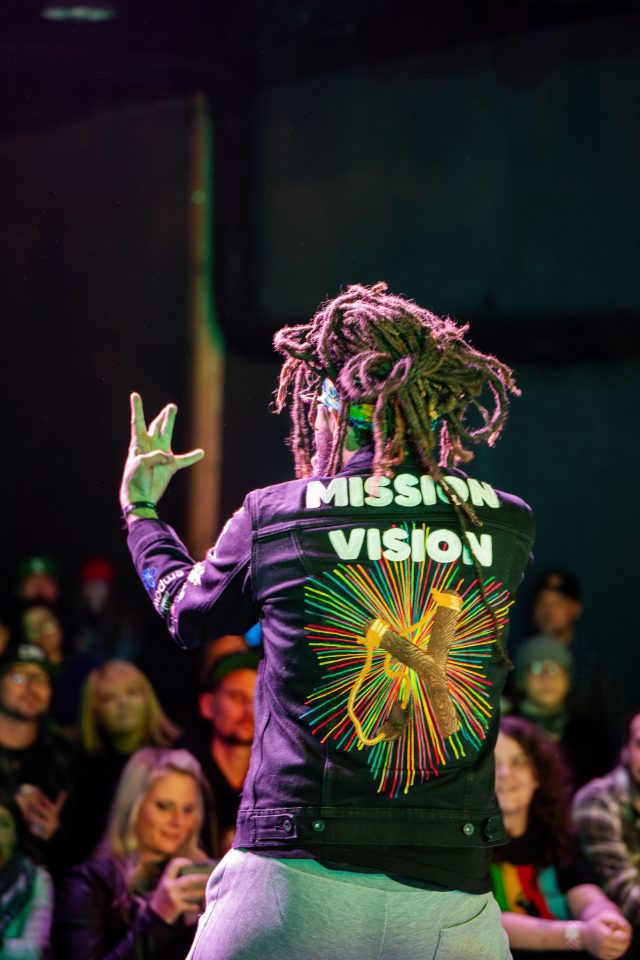
Architect of a new movement
As our conversation winds down, Dee-1’s energy remains electric, his passion palpable. He’s not just making music; he’s serving as the architect of a new movement. His success challenges the notion that conscientious content can’t compete in today’s market, while his initiatives like the Platinum Pledge offer concrete paths for industry-wide change.
In a genre often criticized for its negative influence, Dee-1 stands as proof that you can top the charts while lifting spirits. He’s not just flipping tables — he’s building new ones, where everyone’s invited to sit. Through his music, activism and educational initiatives, he’s demonstrating that commercial success and conscientious content aren’t mutually exclusive. In doing so, he’s not just changing the game — he’s creating an entirely new playbook for the next generation of artists who dare to be different.


